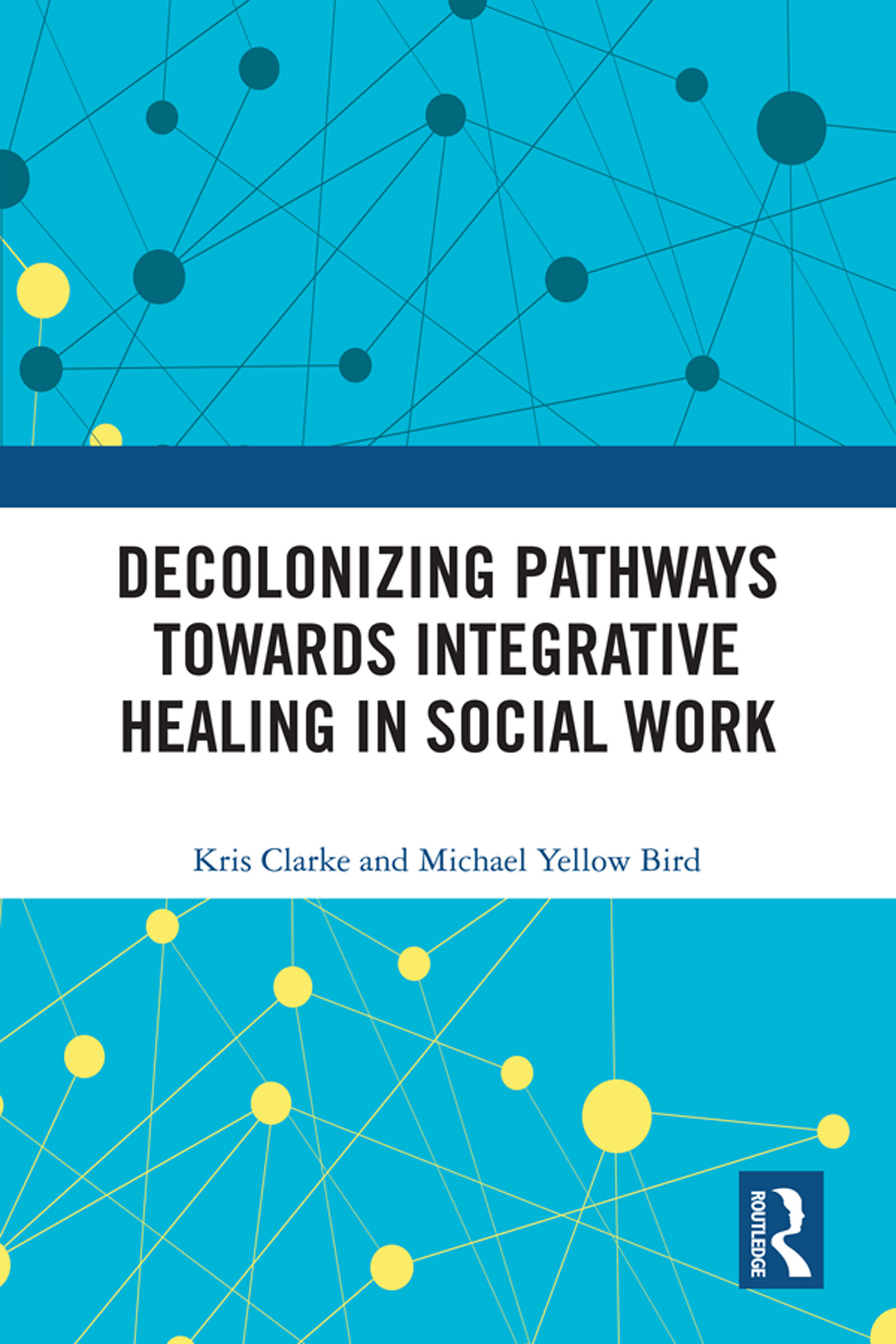Decolonizing Pathways
CONTACT
Michael Yellow Bird, MSW, PhD
Dean and Professor, Faculty of Social Work, University of Manitoba . 522 Tier Building University of Manitoba
Winnipeg, MB R3T 2N2, Canada
Office Phone: 204-474-9869
Email: Michael.yellowbird@umanitoba.ca
Mindfulness
Mindfulness is a spiritual practice that, when done regularly, can "transform the fear, anger, and despair in us and overcome the difficulties we encounter in daily...mindfulness is what brings us back in touch with what's happening in the present moment in our body, feelings, in our thinking, and also in our environment." The practice of mindfulness "may be very simple, but the effect can be great. Focusing on our in-breath, we release the past, we release the future, we release our projects. We ride on that breath with all our being. Our mind comes back to our body, and we are truly there, alive, in the present moment. We are home. Just one breath, in and out, an then the energy of mindfulness is there in us." -(Thich Nhat Hahn, Peace is every breath, 2011).
Neurodecolonization
The first part of the term in "neuro" – refers to neurons which are specialized cells in the nervous system – brain and spinal cord – that send and receive electric signals throughout the body. "Decolonization" refers to activities that weaken the effects of colonialism, facilitate resistance, and create opportunities to promote traditional practices in present-day settings.
Neurodecolonization involves combining mindfulness approaches with traditional and contemporary secular and sacred contemplative practices to replace negative patterns of thought, emotion and behavior with healthy, productive ones.
Drawing on recent scientific research, neurodecolonization builds on the idea that healthy, constructive thoughts, emotions and behaviours can change our brains (and our lives) for the better. Many Indigenous contemplative practices incorporate the same principles and processes as mindfulness approaches, and are important components of physical, emotional, behavioural, and spiritual well-being.
Neurodecolonization seeks an understanding of how mind and brain function are shaped by the stresses of colonialism and compromise the well-being of Indigenous Peoples. Some stressors include, but are certainly not limited to racism, hate crimes; loss of territories, culture and pride; high levels of mortality, poverty, and poor health; and disregard of Indigenous Peoples’ sovereignty and rights.
Along with building new empowered neural networks, neurodecolonization activities are aimed deactivating old, ineffective brains networks that support destructive thoughts, emotions, memories and behaviours, particularly, past and contemporary oppressions associated with colonialism. For example, past colonialism that might have created negativity, sadness and anger – and activated our brain’s networks of feelings of helplessness – might be our memories of our parents or grandparents’ horrific treatment in residential schools or dealing with contemporary, hate, and discrimination.
"Seek to make your life long and its purpose in the service of your people" ~Chief Tecumseh, Shawnee
About the Work:
I work with Tribal and Indigenous Peoples to bring mindfulness and neurodecolonization approaches to these communities for the purposes of healing and improving wellness. I use neuroscience research to examine how mindfulness approaches and traditional Indigenous contemplative practices can train the mind and positively change the structure and function of the brain. I study how experiences and perceptions change the brain (neuroplasticity); shape our DNA and affect the expression of our genes; activate different brain regions, change our brain waves, and shape specialized brain cells such as mirror neurons; and alter our neurotransmitters and modulators. I use my work as a means of translating the neuroscience of mindfulness and neurodecolonization to Tribal and Indigenous communities so they can understand why and how mindfulness and Indigenous contemplative practices work.
About Me
I have been practicing mindfulness meditation and other contemplative practices since 1975 when I was an undergraduate university student. A lot of my own healing and recovery from traumatic events have come from from my mindfulness and traditional tribal contemplative practices. In my professional work I have been introducing and teaching mindfulness to Indigenous communities, programs, and organizations for several years. I have shared the benefits of mindfulness and discussed the concept of neurodecolonization to helping professionals that work with Indigenous Peoples, and integrated mindfulness practices, curriculum, and research into my university classes. I have taught mindfulness to native students, teachers, administrators, incarcerated populations, homeless youth, conference attendees, and health professionals.
Tribal Background
I am a citizen of the Three Affiliated Tribes, the Mandan, Hidatsa, and Arikara Nations. I grew up on the Fort Berthold reservation in White Shield, North Dakota.
Academic Background
I have held faculty appointments in the schools of social work at the University of British Columbia, University of Kansas, Arizona State University, and Humboldt State University, and was the Director of the Tribal and Indigenous Peoples Studies program at North Dakota State University. I am presently the Dean of the Faculty of Social Work at the University of Manitoba, MB, Canada.
I am the author of numerous scholarly articles and book chapters and the co-editor of four books: For Indigenous Eyes Only: The Decolonization Handbook, 2005; For Indigenous Minds Only: A Decolonization Handbook, 2012; Indigenous Social Work around the World: towards Culturally Relevant Education and Practice, 2008; and Decolonizing Social Work, 2013. “Choice Magazine” selected Decolonizing Social Work as a 2014 Choice Outstanding Academic Title. Choice Outstanding Titles are given extraordinary recognition by the academic community and are designated to be “the best of the best.”
My teaching, writing, and research, focus on Indigenous People’s mind body health; mindfulness and neurodecolonization research, theory, and approaches; Paleo and ancestral eating; and colonization and decolonizing theory and practice




